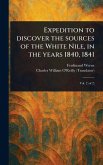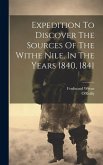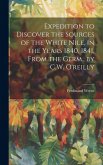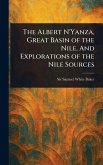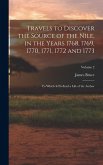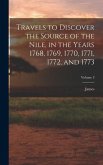Embark on a thrilling 19th-century journey into the heart of Africa with "Expedition to discover the sources of the White Nile, in the years 1840, 1841, Vol. 1 of 2," a captivating exploration of the legendary Nile River. Join Ferdinand Werne as he recounts the challenges and discoveries encountered during this ambitious expedition to uncover the White Nile's elusive origins. This historical account offers a unique window into the world of African exploration, immersing readers in the landscapes and natural history of the region. Werne's detailed narrative provides valuable insights into the geographical and environmental aspects of the Nile River and its surrounding territories. Travel alongside the author as he navigates the complexities of the African continent, documenting the expedition's progress and encounters. A must-read for anyone fascinated by African history, travel narratives, and the allure of scientific exploration, this volume captures the spirit of adventure that defined the 19th century. Experience the challenges and triumphs of a pioneering expedition in this meticulously prepared print republication. This work has been selected by scholars as being culturally important, and is part of the knowledge base of civilization as we know it. This work is in the public domain in the United States of America, and possibly other nations. Within the United States, you may freely copy and distribute this work, as no entity (individual or corporate) has a copyright on the body of the work. Scholars believe, and we concur, that this work is important enough to be preserved, reproduced, and made generally available to the public. We appreciate your support of the preservation process, and thank you for being an important part of keeping this knowledge alive and relevant.
Bitte wählen Sie Ihr Anliegen aus.
Rechnungen
Retourenschein anfordern
Bestellstatus
Storno



